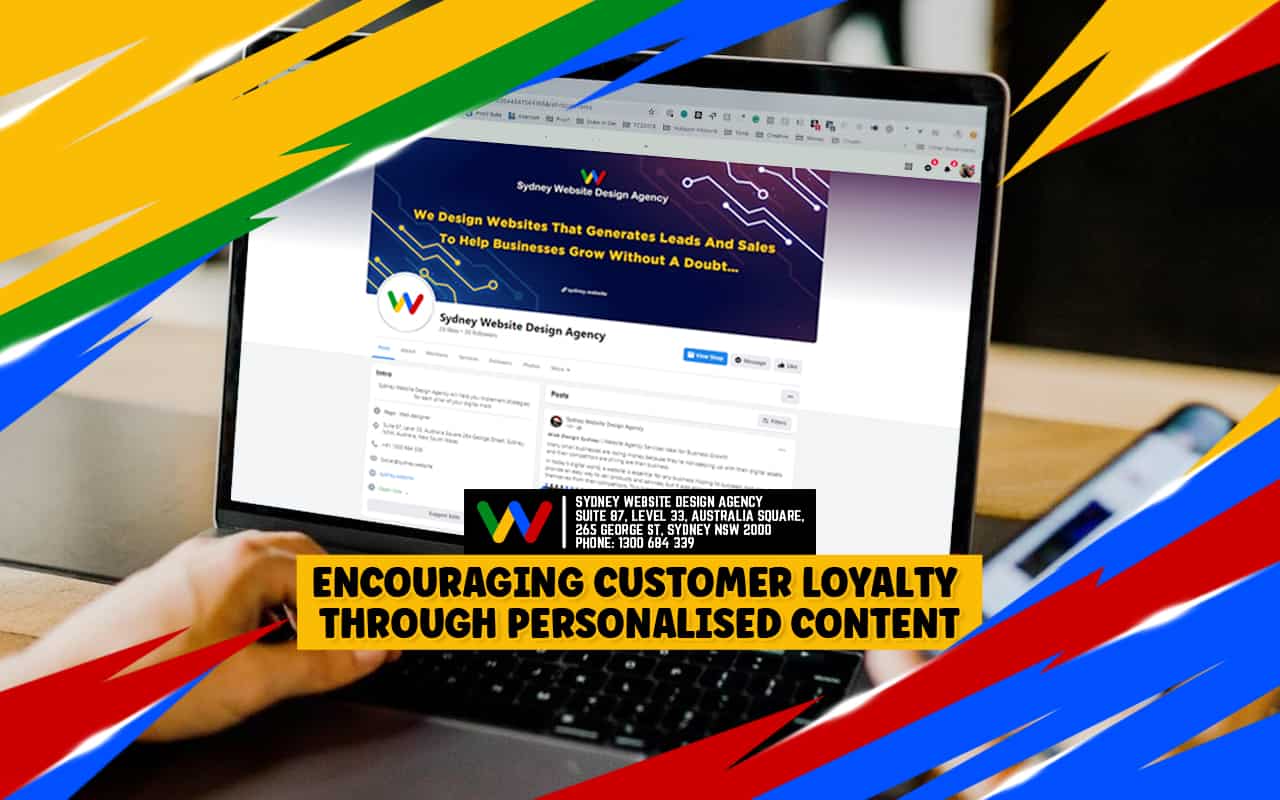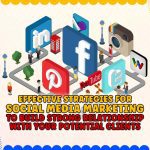Today’s crowded in the digital marketplace. Building trust and loyalty with potential and existing customers is crucial. It helps for generating leads and growing your business. One powerful way to achieve this is through a well-crafted content marketing plan that provides value to your target audience.
In this blog post, we’ll explore how a content marketing plan can help you establish authority. We’ll see content teams address customer pain points, build relationships, and provide value. All of which can lead to increased trust, loyalty, and ultimately, more leads.
Introduction
Are you investigating how to take your existing content marketing plan to the next level? Content has become an essential part of any successful digital marketing strategy, and it is important to understand how to use content to maximise SEO and conversion rates. From crafting effective SEO strategies and leveraging user-generated content, to developing a long-term view for success and optimising product pages, there are many strategies that can help you optimise your content for maximum engagement. In this article, we will explore 20 key tips & tricks that every marketer should know when creating their own comprehensive content marketing plan.
Table of Contents
- Understanding the Basics of Content Marketing
- The Importance of Target Audience Research in Content Marketing
- Creating Valuable and Engaging Content for Lead Generation
- Establishing Yourself as an Industry Expert Through Content Marketing
- Building Trust and Credibility Through Consistent Content Creation
- Encouraging Customer Loyalty Through Personalised Content
- Measuring the Success of Your Content Marketing Plan
- Best Practices for Developing a Content Marketing Strategy
- Utilising Social Media for Content Distribution
- FAQs Content Marketing Campaign
- Incorporating SEO Strategies into Your Content Marketing Plan
Yes, Help Me Generate Leads To Grow My Business
I Don’t Need Help With Lead Generation
Understanding the Basics of Content Marketing

It’s important to understand the basics of content marketing. It is to fully appreciate the value of a content marketing plan in building trust and loyalty. Here are some key points to consider:
Definition of Content Marketing
Content marketing is a strategic approach to creating and distributing valuable, relevant, and consistent content. It is to attract and retain a clearly defined audience — and, ultimately, to drive profitable customer action.
Importance of Audience Research
Content marketing is audience-centric. This means that it’s essential to understand your target audience’s needs, pain points, and interests. This requires in-depth research, including demographic data, behavioural patterns, and psychographic insights.
Types of Content
Content marketing can take many forms. It includes blog posts, social media posts and updates, videos, infographics, white papers, e-books, podcasts, and more. The key is to choose the formats that resonate with your audience and align with your marketing goals.
Content Distribution
Creating great content is just one part of the equation. To be effective, you need to distribute your content through multiple channels. This includes your website, your social media accounts, email newsletters, guest blogging, and more. The goal is to reach your target audience wherever they are and in the format they prefer.
Measuring Success
Finally, it’s crucial to track and measure the success of your content marketing efforts. This involves setting clear goals, defining metrics, analysing data, and making data-driven decisions. It is to optimise your strategy over time.
By understanding the basics of content marketing, you can develop a content marketing plan. One that’s tailored to your target audience, goals, and budget. This, in turn, can help you build trust and loyalty with potential customers. This ultimately helps in achieving more leads and revenue for your business.
The Importance of Target Audience Research in Content Marketing

One of the key elements of a successful content marketing plan is understanding your target audience. Target audience research is critical for creating a content marketing assets. One that resonates with your audience and addresses their specific needs and pain points. Here are some reasons why target audience and keyword research is important in content marketing:
Identify Audience Demographics
Understand your audience’s age, gender, income level, education level, and other demographics. This can help you create content that speaks to their unique experiences and interests.
Analyse Audience
You can gain insights into your audience’s preferences, search patterns, and social media habits. It is by tracking their online behaviour. This information can help you create content that reaches your audience at the right time and in the right format.
Understand Audience Pain Points
Your audience is likely to have specific problems or pain points that they are seeking solutions for. By understanding these pain points, you can create content that addresses their needs. It positions your business as a trusted source of information.
Develop Audience Personas
Creating detailed audience personas can help you. You can visualise your target audience as real people with specific needs, goals, and behaviours. This can inform your content strategy and help you create content that resonates with your audience on a personal level.
Tailor Your Content to Your Audience
You can create content that is more likely to engage them and encourage them to take action. It is by understanding your audience’s preferences and interests. This, in turn, and content ideas can help you build trust and loyalty with your audience and generate more leads.
Overall, target audience research is critical. It helps in creating a successful content marketing plan. One that resonates with your audience and helps you achieve your business goals. You can create a content marketing success that builds trust and loyalty, ultimately leading to more leads and revenue for your business. It is by taking the time to understand your audience.
Creating Valuable and Engaging Content for Lead Generation

Creating valuable and engaging content is crucial. It is a main component of a successful content marketing plan for lead generation. Here are a few resources and some key strategies for creating content that resonates with your audience and encourages them to take action:
Address Audience Pain Points
Your target audience is likely facing specific challenges or problems that they need help solving. You can position yourself as a trusted authority and build trust with potential leads. It is by creating content that addresses these pain points and offers valuable solutions.
Offer Unique Perspectives
To create a content to stand out in a crowded content marketplace, it’s essential to offer unique perspectives and insights. This could involve sharing personal stories and providing original research. You could also offer an alternative viewpoint on a common industry topic.
Use Storytelling
Humans are wired to respond to stories. So, incorporating storytelling elements into your content can help make it more engaging and memorable. This could involve sharing customer success stories and case studies. You could even use metaphors or analogies to explain complex concepts.
Provide Actionable Tips
Your audience is likely searching for practical advice that they can implement in their lives or businesses. You can position the marketing team and yourself as a helpful resource and encourage leads to take action. It is by providing actionable tips and step-by-step instructions.
Incorporate Multimedia Elements
Adding multimedia elements can help make your content more visually appealing and engaging. Examples are images, videos, and infographics. This, in turn, can help capture your audience’s attention and encourage them to spend more time on your website or social media channels.
Use SEO Best Practices
To ensure your content reaches your target audience, it’s important to incorporate SEO best practices. Those such as using relevant keywords, optimising meta descriptions, and including internal and external links. This can help improve your organic search and engine rankings and make it easier for potential leads to find your content.
Overall, creating valuable and engaging content is essential. It is for building trust and loyalty with potential leads. You can create content that resonates with your audience and encourages them to take action. It is by creating valuable and engaging content.
Establishing Yourself as an Industry Expert Through Content Marketing

One of the key benefits of a content marketing plan is the ability to establish yourself as an industry expert. You can position yourself as a trusted authority in your industry. It is by creating valuable and informative content on your area of expertise. Here are some strategies for establishing yourself as an industry expert through documented content marketing strategy:
Provide Original Insights and Research
To stand out from your competitors, it’s critical to offer original insights and research. Those that your audience can’t find elsewhere. This could involve conducting original research and sharing personal experiences. Moreover, providing unique perspectives on industry trends.
Consistency is Key
Consistency is crucial in building a strong reputation as an industry expert. You can show your audience that you are committed to providing value and staying up-to-date on the latest industry trends. It is by regularly publishing high-quality content.
Build a Personal Brand
Establishing a personal brand can help you stand out in a crowded marketplace. This makes it easier for your audience to connect with you on a personal level. This could involve creating a strong social media presence and speaking at industry events. You could also create a personal website or blog.
Engage with Your Audience
Building a relationship with your audience is key to establishing yourself as an industry expert. Engage with your audience by responding to comments and questions. Share their content and ask for feedback on your own content.
Leverage Guest Posting Opportunities
Guest posting on other industry blogs or publications can help you reach a wider audience. You can establish yourself as a thought leader in your industry. Be sure to choose reputable publications. Provide high-quality content that offers unique insights and value to their readers.
Overall, establishing yourself as an industry expert through content marketing can help you. You can build trust and loyalty with potential leads. By establishing yourself, you can position yourself as a trusted authority in your industry. This can help you generate more leads for your business.
Building Trust and Credibility Through Consistent Content Creation

Building trust and credibility is one of the primary goals of content marketing. You can demonstrate your expertise and establish a strong reputation as a trusted authority in your industry. It is by consistently creating high-quality and informative content. Here are some strategies for building trust and credibility through consistent content creation:
Consistency
Consistency is key when it comes to building trust and credibility through content marketing. By regularly publishing high-quality content, you can demonstrate your commitment. It is in providing value to your audience and staying up-to-date on the latest industry trends.
Quality Over Quantity
It’s equally important to prioritise quality over quantity. Focus on creating content that offers unique insights and value to your audience. It is better than simply churning out as much content as possible.
Be Transparent
Honesty and transparency are crucial in building trust and credibility with your audience. Be upfront about your sources, provide accurate information, and be open about any biases or conflicts of interest.
Use Data to Support Your Claims
Backing up your claims with data and research can help build credibility and establish your authority on a topic. Use statistics, case studies, and other forms of data to support your arguments and demonstrate your expertise.
Be Authentic
Authenticity is important in building trust with your audience. Be yourself and share personal stories or experiences when relevant. Avoid trying to sound overly polished or corporate.
Engage with Your Audience
Engaging with your audience can help build trust and credibility. It is by demonstrating your commitment to providing value and building relationships. Respond to comments and questions, ask for feedback, and encourage discussion around your content.
Encouraging Customer Loyalty Through Personalised Content

Encouraging customer loyalty is a significant aspect of content marketing. By creating personalised content, you can build stronger relationships with your audience. You can keep them coming back for more. Here are some strategies for encouraging customer loyalty through personalised content:
Use Customer Data
Customer data can be a powerful tool for creating personalised content. Use data such as demographics, interests, and past purchases. It is to tailor your content to your audience’s specific needs and preferences.
Segment Your Audience
Segmenting your audience based on their interests or behaviours can help you create targeted content. One that speaks directly to their needs. Consider creating separate content streams for different segments of your audience.
Personalise the User Experience
Consider personalising the user experience on your website or other digital channels. This could involve using cookies to remember a customer’s preferences. Furthermore, offering personalised product recommendations based on their past purchases.
Use Personalised Messaging
Personalised messaging can help build a stronger connection with your audience. This encourages loyalty. An example of such is email marketing campaigns that address customers by name or mention their past purchases.
Offer Exclusive Content or Promotions
Offering exclusive content or promotions to your loyal customers can help build a sense of community. It encourages repeat business. Consider offering early access to new products or special discounts for repeat customers.
Respond to Feedback
Responding to customer feedback and addressing their concerns can help build trust and loyalty. Consider using customer feedback to inform your content strategy. Create content that directly addresses common questions or concerns.
Overall, personalised content can be a powerful tool. It encourages customer loyalty and builds strong relationships with your audience.
Content Marketing Plan Frequently Asked Questions

Measuring the success of your content marketing plan is crucial to understanding what’s working and what’s not. Furthermore, how you can optimise your strategy to generate more leads and build stronger relationships with your audience. Here are some strategies for measuring the success of your content marketing plan:
Define Your Goals
Before you can measure the success of your content marketing plan, you need to define your goals. Are you looking to generate leads, increase website traffic, or build brand awareness? Once you clearly understand your goals, you can use metrics to measure your progress.
Use Analytics Tools
Analytics tools such as Google Analytics can help you track key metrics such as website traffic, time on page, and bounce rates. Use these tools to identify which pieces of content are resonating with your audience and which ones may need to be optimised.
Track Engagement
Engagement metrics can give you insight into how your audience is responding to your content. Examples of such are social media likes, shares, and comments. Use these metrics to identify which topics or formats are most popular with your audience. Adjust your content strategy accordingly.
Monitor Lead Generation
Lead generation is one of the primary goals of content marketing. Use tools such as marketing automation software or customer relationship content management system (CRM) software. It is to track how many leads are generated from your content, as well as which pieces of content are most effective at generating leads.
Analyze Conversion Rates
Conversion rates are another key metric to measure the success of your content marketing plan. Use conversion tracking tools to monitor how many leads are converting into customers. Adjust your content strategy as needed to optimise conversion rates.
Use A/B Testing
A/B testing can help you test different versions of your content to see which ones are most effective. Test different headlines, calls to action, or content formats. It is to see which ones generate the most engagement or conversions.
Best Practices for Developing a Content Marketing Strategy

Developing a successful content marketing strategy requires careful planning and execution. Here are some best practices to follow when developing your own content marketing strategy here:
Define Your Target Audience
Your content marketing strategy should be tailored to your target audience. Before creating any content, it’s important to understand who your audience is and what their needs and interests are. This will help you create content that resonates with them and drives engagement.
Set Goals and Objectives
Your content marketing strategy should have clear goals and objectives. Ones that align with the content marketing mission statement, your overall business objectives. It’s important to define your goals so you can measure your progress and adjust your strategy as needed. It is whether you have a content marketing mission statement’re looking to generate leads, increase website traffic, or build brand awareness.
Choose the Right Channels
There are many channels you can use to distribute your content, including social media, email, blogs, digital tools, and more. It’s important to choose the channels that are most effective at reaching your target audience and driving engagement.
Utilising Social Media for Content Distribution

Social media has become an essential component of the content creation process and marketing. It provides businesses with a powerful platform to reach and engage with their target audience. Here are some best practices for utilising social media for content production and distribution:
Choose the Right Platforms
Not all the social media marketing platforms are created equal. It’s important to choose the social media platforms that are most effective at reaching your target audience. For example, if you’re targeting B2B customers, LinkedIn may be a better option than Instagram.
Optimise Your Profiles
Your social media profiles should be optimised to reflect your unique brand voice and provide a clear value proposition to your audience. Make sure your profile pictures, bios, and cover photos are consistent and professional.
Create Shareable Content
Your content should be shareable, meaning it’s easy for your audience to share with their own networks. This can go a few ways, including creating visually appealing graphics. You can add social sharing buttons to your website and use hashtags.
Engage with Your Audience
Social media is a two-way conversation, so it’s important to engage with your audience. Respond to comments and messages in a timely manner, ask questions, and encourage feedback.
Use Paid Advertising
Paid social media advertising can be a highly effective way to reach a larger audience and promote your content. Platforms like Facebook and LinkedIn offer powerful targeting options to ensure your content is seen by the right people.
Monitor Your Results
Like any other aspect of your content marketing strategy, it’s important to monitor your social media results. Use analytics tools to track your engagement metrics, reach, and conversion rates. This will help you identify what’s working and what’s not, and adjust your social media analytics strategy as needed.
FAQS Content for Marketing Campaign
FAQs (Frequently Asked Questions) are an excellent way to provide valuable information to your target audience. You can address any potential concerns or questions they may have. Here’s how you can use FAQs in your content marketing campaign:
Identify Common Questions
Create a Dedicated FAQ Section
Use Customer Language
Be Concise and Clear
Update Regularly
Promote Your FAQs
By incorporating FAQs into your content marketing strategy, you can provide valuable information to your target audience. You can address potential concerns or objections, and build trust and credibility with your customers.

Incorporating SEO Strategies into Your Content Marketing Plan

Incorporating SEO (Search Engine Optimisation) strategies into your content marketing plan can help improve the visibility of your content in search engine results pages (SERPs). It drives more organic traffic to your website.
Search engines prioritise high-quality, informative content. Make sure your content is well-researched and provides value to your target audience. Ensure that it is written in an engaging and easy-to-read style.
A well-executed content marketing plan can play a crucial role. It helps in building trust, establishing credibility, and nurturing customer loyalty. Remember to continually measure and adjust your content marketing efforts. It is to ensure they are effective and aligned with your business goals. With the right approach, a good content marketing strategy can be a powerful tool. It helps in growing your business and building lasting relationships with your customers.



















































